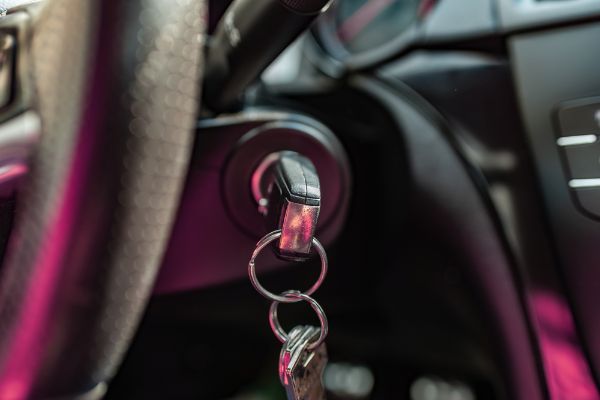When your vehicle won’t turn over, it means the engine does not start. You may hear a click, a series of clicks, or nothing at all. This can happen in cold weather, after sitting overnight, or for no clear reason. No-start problems can be scary and confusing. Your vehicle may have power to the lights and radio, but the engine still does not crank. This usually means a deeper issue. A no-start problem is different from a vehicle that turns over but does not fire. In a no-start, the engine does not even try to run. The most common causes are a dead battery, bad starter motor, or wiring issue.
Battery and Starter Motor Problems
A dead or weak battery is a leading cause of no-start issues. If the lights are dim or the horn sounds weak, the battery may be drained. Cold weather makes this worse. Jump-starting the battery may work once, but it does not fix the real problem. A weak alternator can also fail to charge the battery. If your vehicle clicks when you turn the key but nothing else happens, the starter motor could be bad. The starter cranks the engine. If it fails, the engine will not turn over. Corroded battery terminals can also block power to the starter. Cleaning the connections can sometimes fix this. A loud grinding noise when starting may also point to a bad starter gear.
Electrical and Ignition Switch Issues
If the battery and starter are good, the problem could be the ignition switch. The ignition switch sends power to the starter. If it is broken, the vehicle will not respond when you turn the key. You may not hear any sound at all. A broken neutral safety switch can also stop the vehicle from starting. This switch stops the vehicle from starting in gear. If the switch fails, the vehicle may think it is in gear even when it is not. Some newer vehicles also use relays and fuses that control the starter circuit. If a fuse blows or a relay fails, power does not reach the starter. A wiring issue or broken ground connection can stop everything from working.
When to Get Help from a Repair Shop
A no-start issue can leave you stuck at home, work, or in a parking lot. It may take testing to find out what is wrong. A general repair shop can check your battery, starter, and ignition system. They will test your charging system and look for power at each step. They will check for broken fuses, bad relays, and loose wires. They can use tools like a voltmeter or scan tool to find hidden problems. This saves time and avoids guesswork. If your vehicle won’t turn over, it is best to get it to a shop before the problem gets worse. Ignoring a no-start can lead to a full breakdown.
If your vehicle won’t start and you don’t know what is wrong, the team at Tres Amigos Auto Service is here to help. We fix no-start problems often. Our trained technicians check the battery, starter, ignition switch, and wiring to find the cause. We use the right tools to test each part so we don’t guess. You can trust us to find the problem and fix it the right way. Go to Tres Amigos Auto Service to make an appointment or learn more about what we do. We are ready to help you get back on the road.

